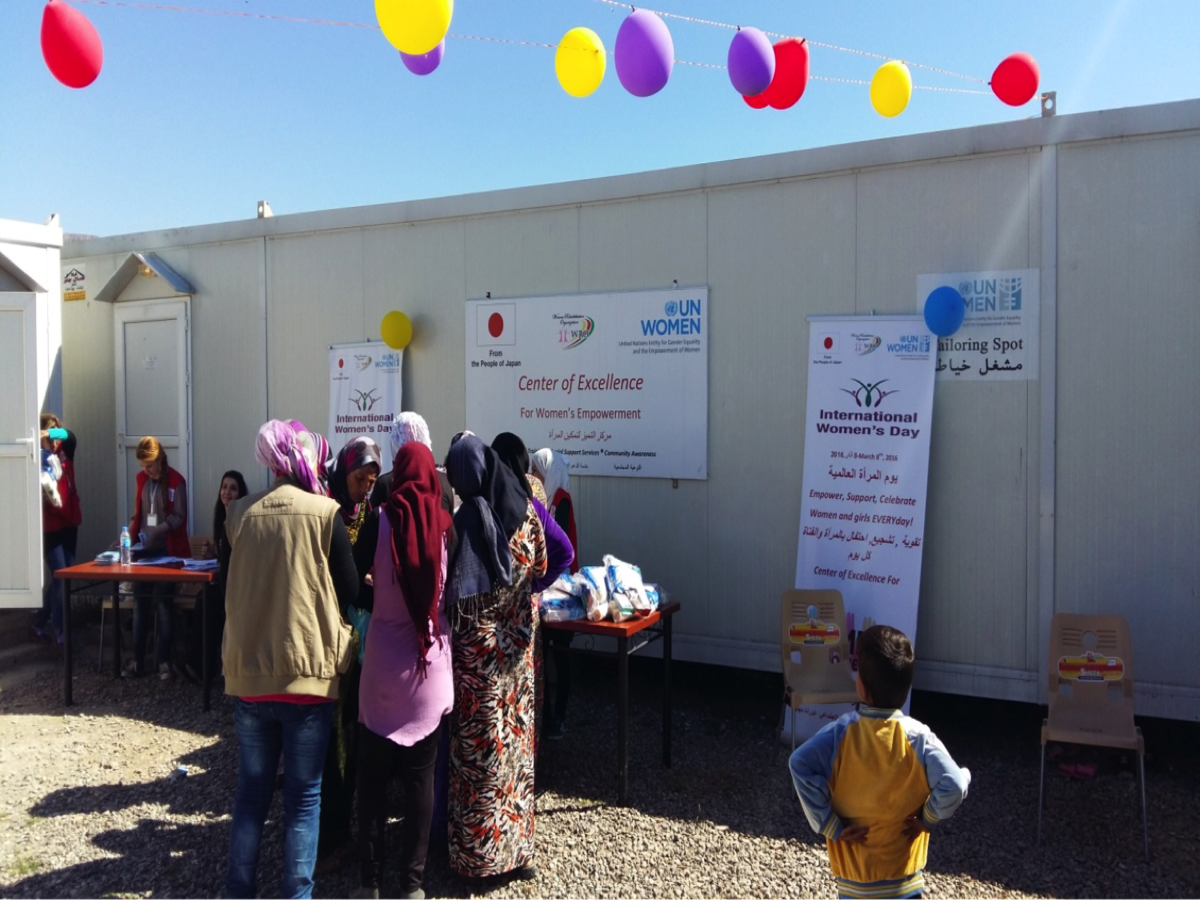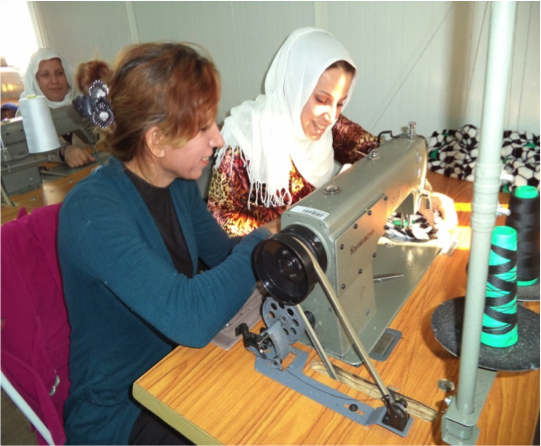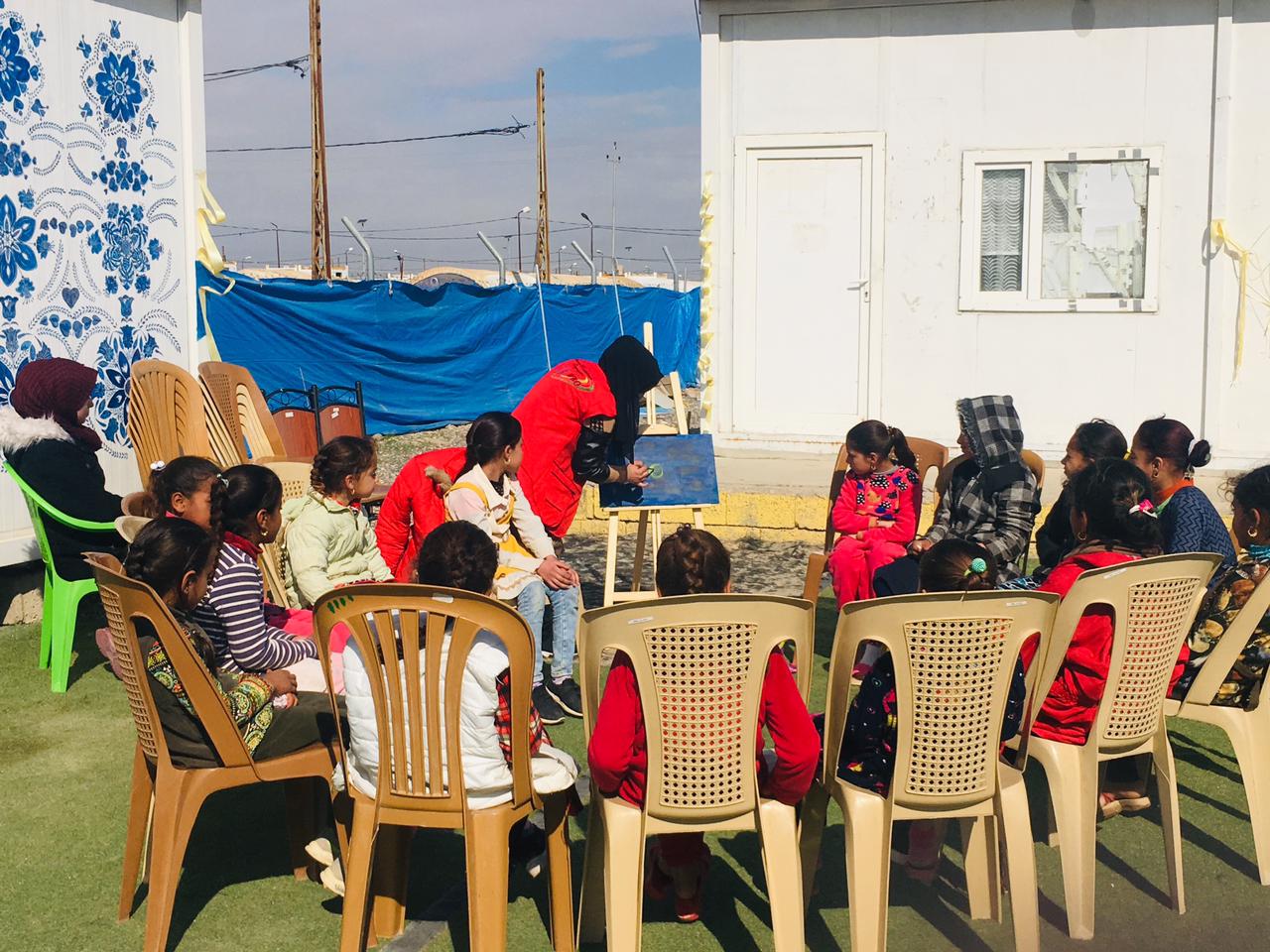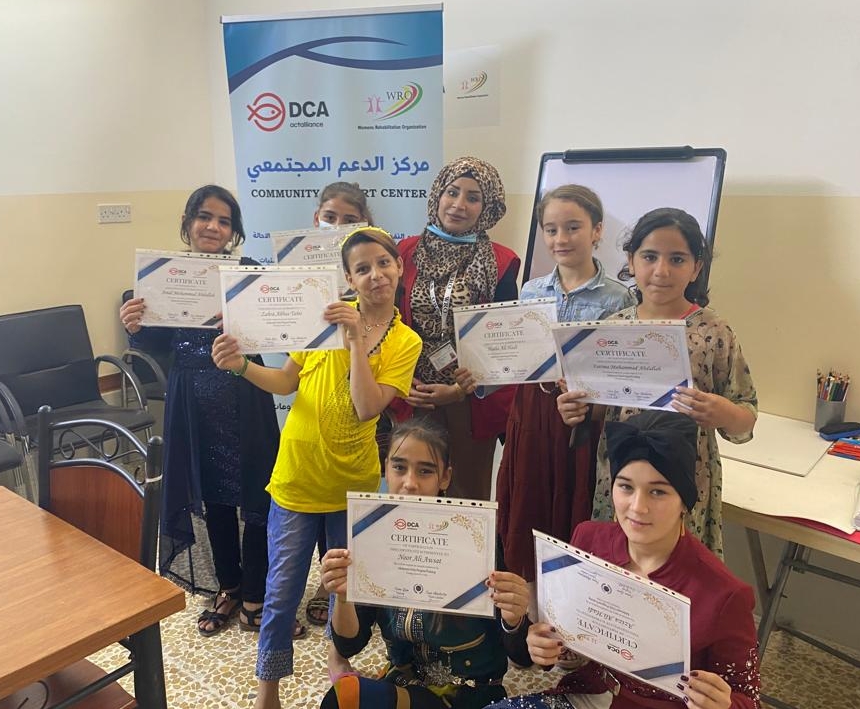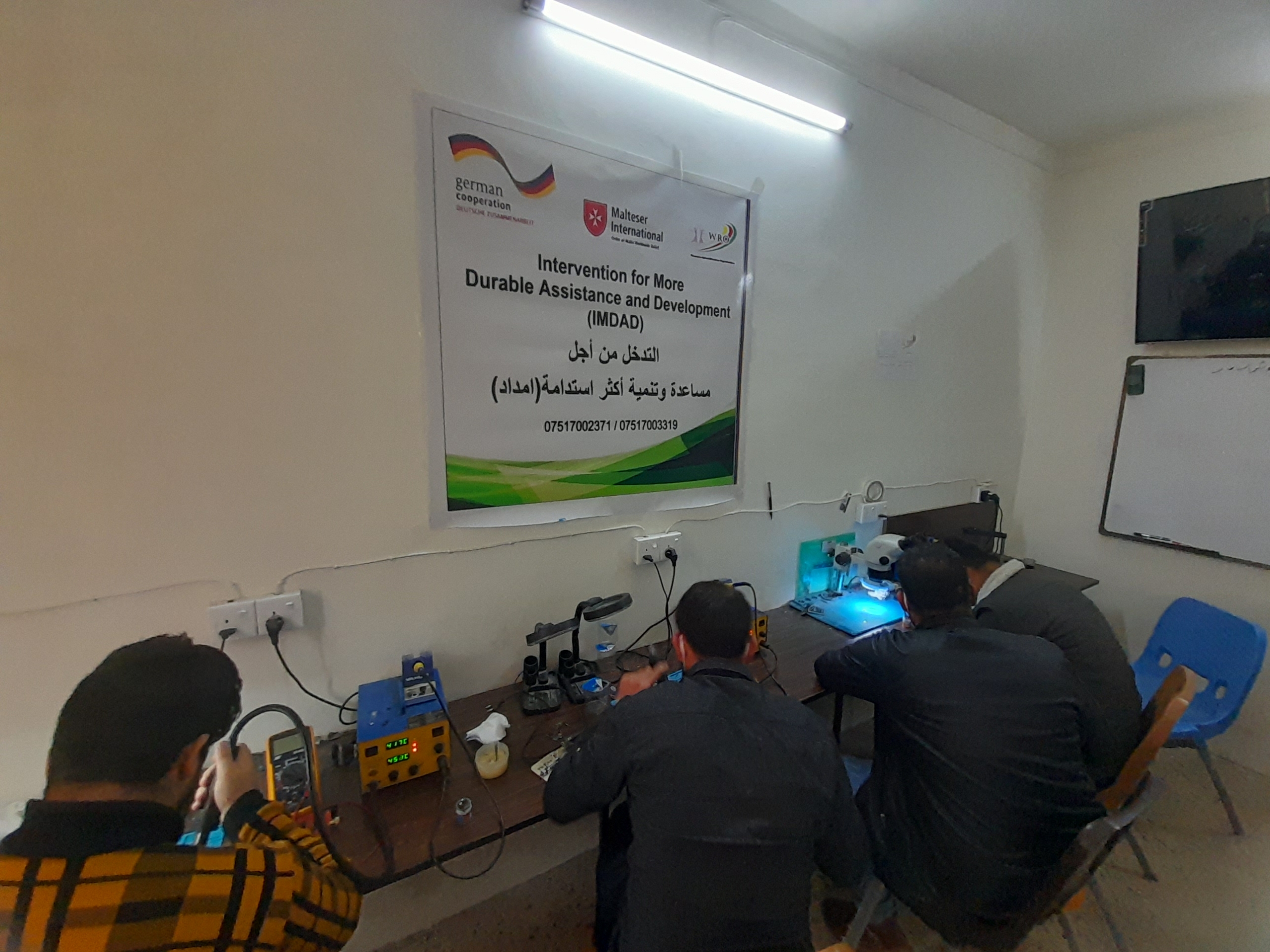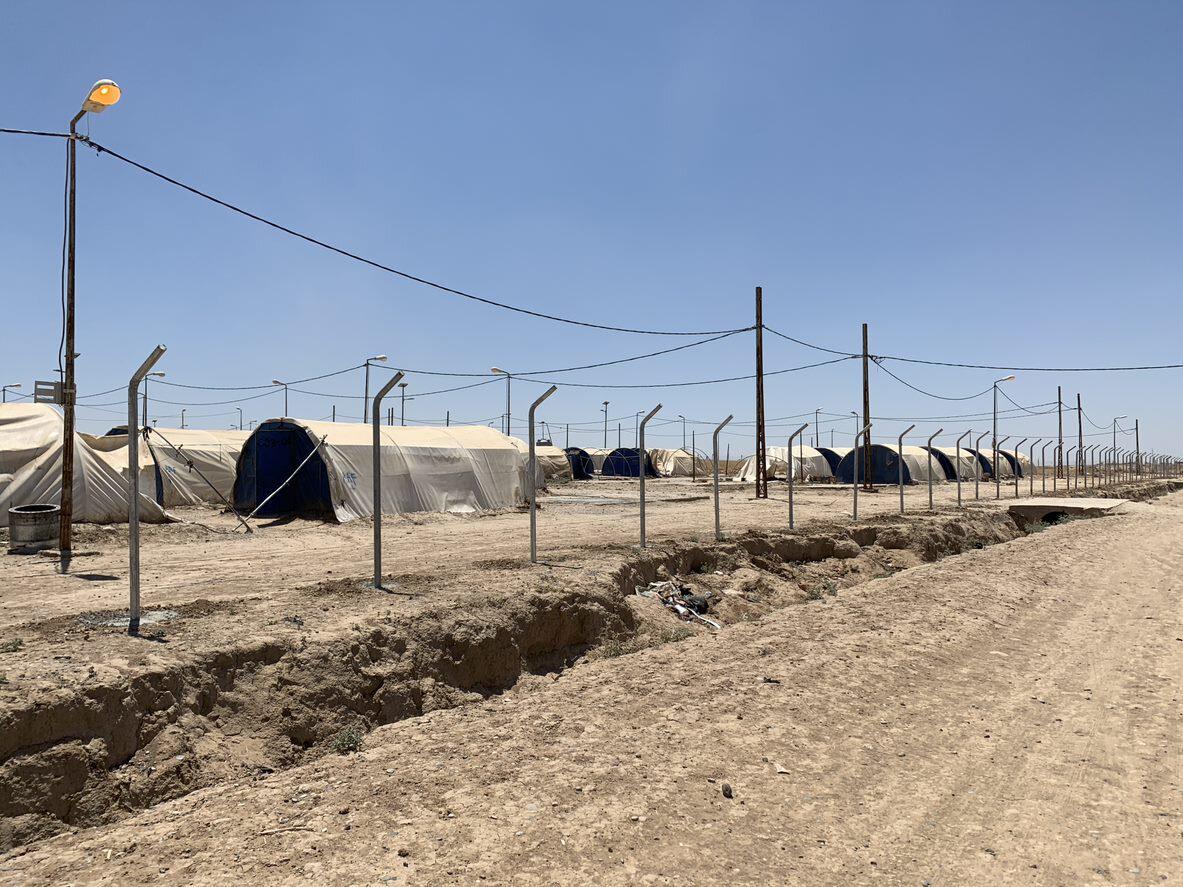Project Description
Funded by: UN Women/Japanese Government
Timeline: January – March 2016
This project was aimed at strengthening the social and economic empowerment of women and girls in Baserma Refugee Camp. By providing on-the-job training via joint vocational classes and cash-for-work program activities, women develop their professional capacity through sewing, computer literacy and hairdressing course. Thus improving Syrian refugee women’s income and competiveness in securing future employment. Workshops on GBV protection mechanisms, health risks associated with early marriage can enable young women and girls a clearer idea about their most basic human rights. The establishment of a Syrian refugee women’s committee allows space to discuss concerns, share ideas and engage with camp managers, agencies and organizations and service operators in the camp in addition to local officials on decisions that concern their livelihoods. Dissemination of relevant legal information will help develop women’s political awareness.
Project Outcomes/Achievements: Mobile teams reached 501 Families (78 female and 423 male headed households) to familiarize them with WRO services available in the camp while conducting needs-based assessments. 307 women and girls received psychosocial support from social workers with cases ranging from physical and psychological health issues such as depression, anxiety stemming from prolonged displacement; exacerbated the extreme lack of basic necessities, unemployment, divorce and domestic strife, and increased financial debt within the camp. In many cases WRO utilizes referral pathways to transfer beneficiaries to the appropriate agencies for additional support as required. 270 women and girls graduated from the technical training program in sewing, hairdressing, and computer literacy. The courses were one month in duration and had 104 participants. The second course group had of 146 participants; an advanced accelerated program hosted 20 additional participants. The trainees were compensated for the items they produced. During the project life the participants produced 750 children children’s pajamas, 249 articles of baby clothes and 436 women’s outfits, which were distributed n the camp and during events by the mobile team and project staff. The cosmetology course engaged 65 trainees who were compensated for their work in the salon in the afternoons where they provide styling services to 225 women and girls from the camp.



